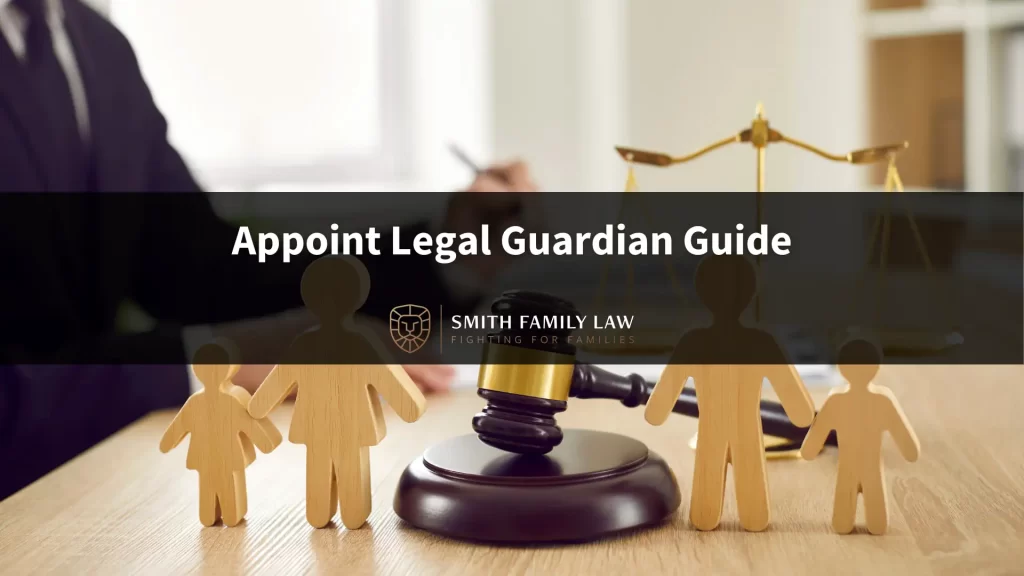
Are you thinking about setting up a legal guardianship in Texas? This is a big step that involves legal forms, court procedures, and strict requirements. If you’re looking for guidance and want to ensure that everything goes smoothly, consider contacting a lawyer. Don’t know when and how to appoint legal guardian? They can simplify the process and provide the support you need to move forward confidently.
What Is a Legal Guardian?
A legal guardian is someone the court appoints to take care of another person, called the ward. The ward might be a child or an adult who can’t make decisions for themselves due to age, injury, or disability. There are two main types of legal guardians (Sec. 1104.001):
- Guardian of the Person: A guardian of the person makes personal decisions for the ward, like those related to healthcare, education, and living arrangements. They ensure the ward’s daily needs are met and make choices that affect the ward’s overall well-being.
- Guardian of the Estate: This type of guardian manages the ward’s money and property. They handle tasks like paying bills, investing money, and keeping track of the ward’s assets to ensure financial stability.
Steps for Appointing a Legal Guardian in Texas
What should you know on how to appoint legal guardian? In Texas, appointing a legal guardian requires you to take several key steps. First, you must determine whether the proposed ward truly requires a guardian, as guardianship is often a last-resort arrangement. The court is less likely to appoint a guardian if an alternative arrangement is possible.
Next, you need to choose who will serve as the guardian. This person should be responsible and capable and have the ward’s best interests at heart. Once you’ve identified a suitable guardian, you file a petition with the Texas court. This petition explains why the ward needs a guardian and names the person you’ve suggested for the role. An experienced attorney can help you with this step by identifying the necessary forms and completing and filing them on your behalf.
After filing, the court will schedule a hearing. Here, you’ll need to present evidence that supports the need for guardianship. Your lawyer can compile and present the necessary evidence effectively to demonstrate to the court the necessity of the arrangement. The proposed guardian must also undergo a background check to ensure they’re fit for the responsibility.
If the court agrees with your petition, it will issue an order that officially appoints the guardian. The guardian then assumes legal responsibility for the ward and the authority to make decisions on their behalf. Guardians in Texas must follow the court’s rules, which might include filing regular reports on the ward’s well-being or finances to ensure they are acting in the ward’s best interest.
How Long Does Legal Guardianship Last?
The duration of a legal guardianship arrangement depends on the situation. For children, guardianship arrangements usually last until the child turns 18. At that age, the law considers them adults who can make decisions for themselves.
However, if the guardianship is for an adult, it might last for a shorter period or even for the rest of their life. This depends on whether the adult can ever regain the ability to make decisions for themselves. For example, if someone recovers from a condition that temporarily affected their decision-making ability, the court could end the guardianship.
The court reviews guardianship cases regularly to ensure the arrangement still serves the ward’s best interest. If circumstances change, the court can adjust or end the guardianship accordingly.
Can a Guardian Sign Legal Documents?
Yes, a guardian can sign legal documents for their ward. This ability is an essential part of being a guardian. When the court appoints someone as a guardian, it gives them the authority to make decisions on the ward’s behalf, which includes signing legal documents.
For a guardian of the person, this might mean signing forms related to healthcare, education, or other personal matters. For a guardian of the estate, it could involve handling financial documents, like those necessary for managing bank accounts or buying property.
The guardian must always act in the ward’s best interest when signing any documents on their behalf. They are responsible for protecting the ward’s rights and well-being. The court closely monitors guardians by requiring regular reports and review hearings to ensure they fulfill their duties responsibly.
How Old Does a Legal Guardian Have to Be?
In Texas, a legal guardian must be at least 18 years old. Those 18 and older are considered legal adults capable of making mature and responsible choices. This means they can legally enter contracts, make medical decisions, and handle financial matters on behalf of others. These abilities are essential for a guardian to effectively care for and protect their ward’s interests.
Besides being at least 18, any person applying to be a guardian must also show that they are responsible and have the ward’s best interests at heart. The court considers each of these qualities to decide if someone is fit to be a guardian.
What Rights and Responsibilities Do Legal Guardians Have?
Every guardian’s primary responsibility is to ensure the well-being of the ward they’re looking after. This means ensuring the ward has a safe place to live, access to medical care, and a good education if the ward is a child. Some guardians must also manage their wards’ money and property wisely and responsibly.
What rights do legal guardians have? Guardians have the right to make decisions on behalf of their wards. This includes decisions about health care, education, and living arrangements. For guardians of the estate, it involves managing the ward’s finances, like paying bills and investing money.
At the same time, guardians must respect their wards’ rights and preferences. They should involve the ward in decisions as much as possible, considering what the ward wants and what’s best for them.
Finally, guardians must report to the court regularly. This might include providing updates on the ward’s health, living situation, and how they use the ward’s money. This is necessary so the court can stay informed and ensure that the guardian is doing their job properly.
Contact a Texas Guardianship Attorney Now
Don’t know when and how to appoint legal guardian? If you are an incapacitated person, you can make use of a power of attorney as an alternative to guardianship. However, if you’re looking to appoint a legal guardian in Texas but aren’t sure where to start, the Austin guardianship attorneys of Smith & Bledsoe Family Law are here to help. Our legal team can walk you through the entire legal process, fill out complicated forms on your behalf, and stand by your side in court. Get in touch with our firm now at (512) 277-3166 for a free case evaluation and take the first step with a trusted team that will provide unwavering support for you and your loved one.
